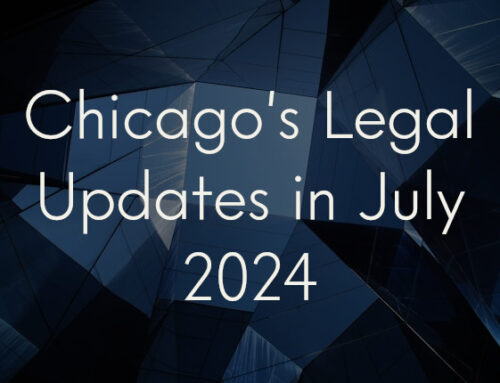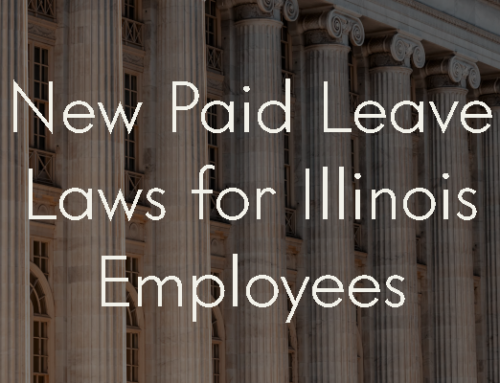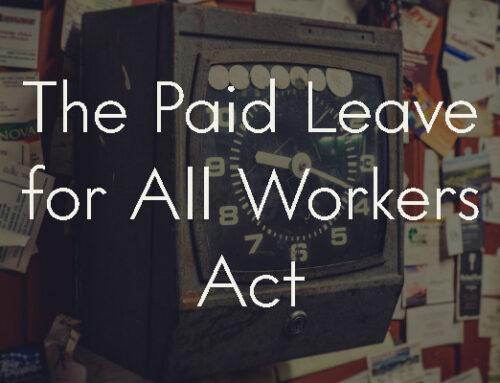In 2022, several new laws went into effect in Illinois that could impact your business. In this blog post, we will dive into each of those new laws and how they may affect you, although this is not an exhaustive list of every law effective this year. If you have any questions about what these laws mean for your business, contact our knowledgeable lawyers at G & G Law today.
Chicago Vaccine Requirement
In response to rising COVID-19 cases, Chicago enacted a vaccine requirement mandating that individuals must show proof that they are fully vaccinated against COVID-19 to enter the following spaces:
- Establishments where food and beverages are served, such as restaurants, bars, food courts, dining areas of grocery stores, and more.
- Gyms and fitness spaces.
- Entertainment and recreation venues in areas where food or beverages are served.
See the order for a full list of the affected locations (called “Covered Locations”). This requirement is effective January 3, 2022, and affects most public indoor settings.
This requirement does not affect the following businesses:
- Houses of worship.
- Pre-K-12 schools.
- Child-care programs.
- Locations within the airport.
- Locations in residential/office buildings where use is limited to residents, owners, or tenants of the building.
- Charitable food service establishments (ex. soup kitchens).
The new law requires affected establishments to do the following:
- Verify the vaccination status of all patrons, including verifying identity for those age 16 and older.
- Keep a written record describing the protocol for implementing and enforcing the vaccine mandate.
- Post signage at each accessible entrance and at least one location inside the business of the Covered Location that is visible to individuals.
With this update, it is crucial to comply with the steps described above. Create guidelines for your business so that all of your employees know the policies in place and can effectively enforce them for customers and patrons. The city of Chicago has already begun issuing citations for violations of this public order.
Domestic Workers Rights
Beginning January 1, 2022, all Chicago employers of nannies, care workers, and home cleaners (i.e., professions that include domestic workers) must provide their employee with a written contract in their preferred language (see Ordinance 6-100-020).
The contract must include the following:
- The wage; and
- The work schedule agreed upon by the employer and domestic worker.
A domestic worker includes any person whose primary duties include housekeeping, nanny services, caregiving, personal care, or home health services. The terms within the contract should be mutually agreeable between both parties.
While some people attempt to draft these agreements themselves, there are specific legal requirements that employers of domestic workers must adhere to or face penalties and fines. Always consult with a knowledgeable attorney to ensure you include the proper provisions and are complying with this update.
The “Lifting Up Illinois Working Family Act”
Beginning January 1, 2022, the state’s minimum wage increases to $12 per hour. It should be noted that the minimum wage may vary from municipality to municipality, and Chicago’s minimum wage is already $15 per hour.
The new minimum wage law states that tipped employees can be paid 60% of the hourly minimum wage ($7.20 per hour), but they must make the minimum wage limit after tips, or their employer must make up the difference. Chicago also has a lower minimum wage for tipped employees depending on how many employees an employer has.
Beginning January 1, 2022, workers under the age of 18 who work fewer than 650 hours in a year will earn a minimum wage of $9.25 per hour. Chicago also allows reduced rate of $11 per hour for minors.
Human Trafficking Recognition
This law (SB1600) requires restaurants and truck stops to provide employees with training concerning human trafficking and establish protocols for reporting human trafficking to the proper authorities. Though this training was already required for establishments like hotels, this was a necessary update to further combat human trafficking in Illinois.
Governor JB Pritzker signed this into law in recognition of the fact that human trafficking is prevalent in Illinois, “thriving on invisibility.”
State Holiday: Juneteenth
This law (HB9322) designates June 19th as a paid state holiday, Juneteenth. On this day in 1865, federal troops arrived in Galveston, Texas, to enforce the freeing of all enslaved people, nearly two and a half years after President Lincoln signed the Emancipation Proclamation and two months after the Civil War ended.
These laws must be followed by all businesses and employers. If you have any questions, you can email us at info@gglawoffices.com or submit a message through our contact page. We help our clients understand the laws that may affect their businesses and ensure they are compliant as these updated laws go into effect.





